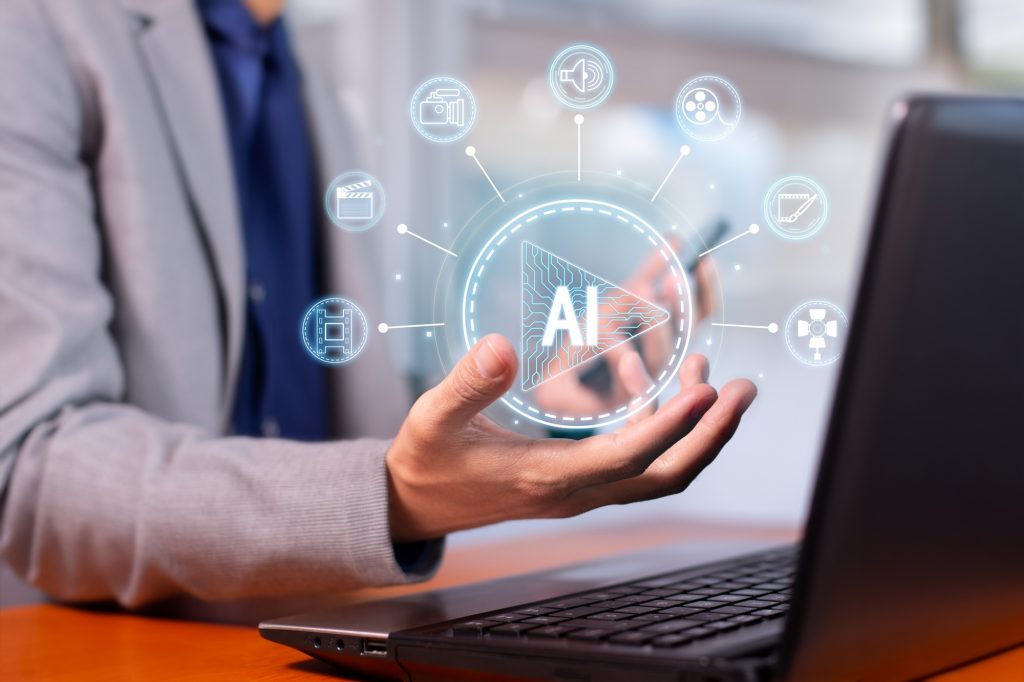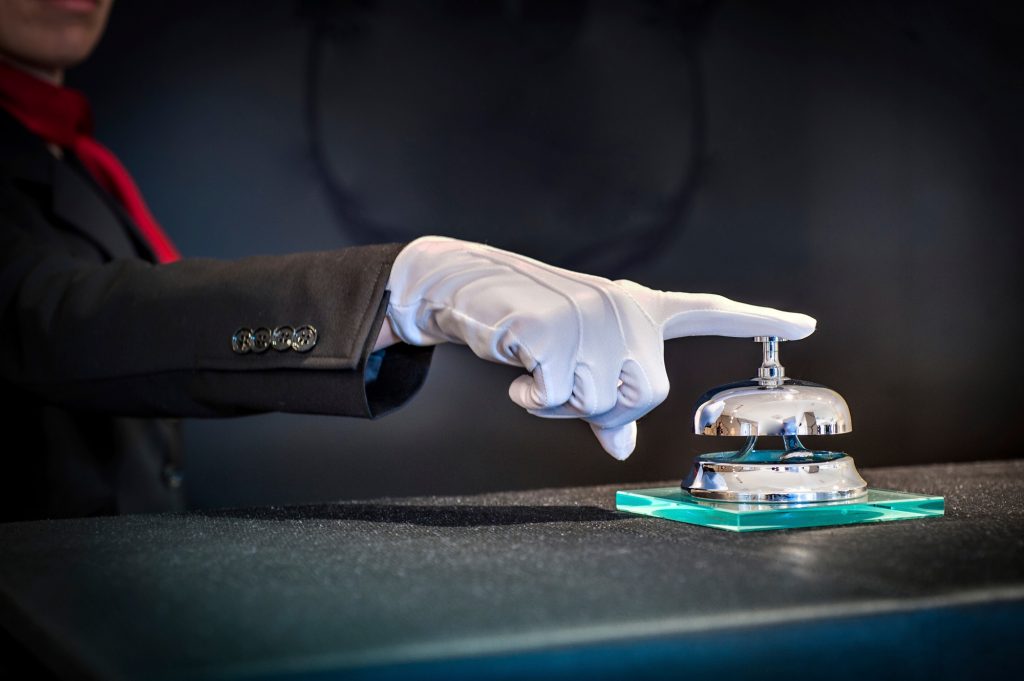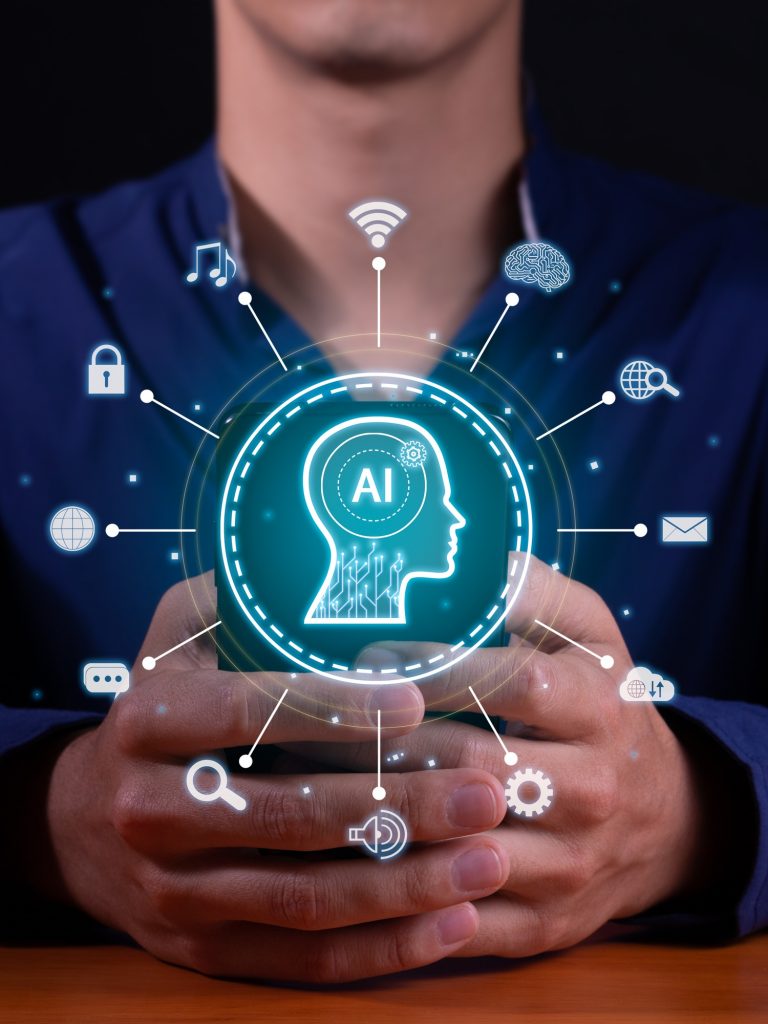There’s a quiet shift happening in luxury hospitality that most people aren’t talking about yet.
While everyone debates whether artificial intelligence will change the industry, the smartest operators have already moved past the conversation. They’re installing AI concierge systems that handle guest requests with the kind of precision and availability that human staff simply can’t match around the clock.
The transformation occurring at luxury properties worldwide isn’t about replacing traditional concierge desks—it’s about enhancing service delivery in ways that weren’t possible before. When 95% of customer interactions are projected to be AI-handled by 2025, and the AI customer service market is reaching £38.3 billion by 2030, we’re looking at a fundamental shift in guest expectations and operational capabilities.
Here’s what makes this particularly compelling: 89% of hoteliers agree that targeted personalisation is the most effective approach for improving guest experience. AI concierge systems deliver exactly that—personalised, immediate responses that adapt to individual guest preferences and property-specific service offerings.
This article examines the current state of AI adoption in hospitality, explores the measurable benefits for both properties and guests, discusses implementation realities based on actual deployments, and considers what the future holds for properties willing to embrace these capabilities now.
The story isn’t just about technology—it’s about creating competitive advantages that directly impact your bottom line whilst elevating the guest experience in ways that build lasting loyalty.
Why AI Concierge Services Matter Now

The numbers supporting AI concierge implementation aren’t theoretical projections—they’re results from properties already operating these systems.
Guest Satisfaction Metrics Tell the Real Story
Cornell Hospitality Research documented satisfaction score increases of up to 25% at properties using comprehensive AI concierge systems. More specifically, travellers report 28% higher satisfaction rates when using AI concierge services compared to traditional customer service channels.
These aren’t marginal improvements. When guest satisfaction directly correlates with review scores, repeat bookings, and revenue per available room, a 25% improvement represents substantial competitive advantage.
The satisfaction gains come from eliminating common frustrations. Guests are 32% more likely to book additional services when using AI concierge systems (TrustYou), largely because recommendations feel personalised rather than pushy. The system analyses guest profiles, previous stays, and current preferences to suggest relevant experiences at optimal moments.
Operational Efficiency Creates Measurable Value
The operational impact extends well beyond guest satisfaction. Properties report a 35% reduction in resolution time for standard inquiries, with a corresponding 40% decrease in customer service overhead costs. These improvements free up staff capacity for higher-value interactions whilst reducing operational strain during peak periods.
Consider the broader industry context: the hospitality sector could save £1.6 billion annually through automation of routine activities like check-ins, information requests, and basic service coordination. For individual properties, this translates to measurable cost reductions and service capability expansion.
The 24/7 availability factor proves particularly valuable. AI concierge systems deliver consistent, high-quality responses around the clock without fatigue, delays, or additional labour costs. This addresses a fundamental challenge for luxury properties—maintaining service standards during off-peak hours and overnight periods.
Revenue Generation Beyond Cost Savings
Perhaps most importantly, AI concierge systems generate revenue rather than just reducing costs. A luxury resort group achieved a 23% boost in ancillary revenue after implementing AI-driven upselling tools that analyse guest preferences and suggest targeted experiences (Operto).
The revenue impact comes from several factors. AI systems identify optimal timing for upselling opportunities, suggest services based on actual guest behaviour patterns, and present offers in ways that feel helpful rather than commercial. Properties also report a 3% improvement in booking conversion rates through AI-powered recommendation engines that guide guests toward services they’re most likely to value.
Front desk inquiries drop by 40% when AI concierge systems handle routine requests, allowing staff to focus on complex guest needs and relationship-building activities that drive loyalty and repeat business. This reallocation of human resources creates value that’s difficult to quantify but easy to observe in guest feedback and staff satisfaction scores.
Understanding the Technology How AI Concierge Systems Work

Modern AI concierge systems bear little resemblance to the basic chatbots that frustrated users just a few years ago.
Core Technologies That Make the Difference
Today’s systems use sophisticated natural language processing to understand context, intent, and emotional undertones in guest communications. When someone texts “I’m feeling under the weather and need something comforting,” the system doesn’t just suggest room service—it recommends specific comfort foods, offers to arrange spa treatments, and coordinates with housekeeping for additional amenities.
Intent detection capabilities allow the system to understand what guests want even when they don’t express it directly. Sentiment analysis helps tailor responses based on whether someone seems frustrated, excited, or simply seeking information. These technologies work together to create interactions that feel natural and contextually appropriate.
Multilingual support extends beyond basic translation. Advanced systems recognise regional dialects, cultural communication preferences, and context-specific terminology. This capability proves particularly valuable for international luxury properties serving diverse guest populations.
Voice AI Capabilities Expanding Rapidly
The voice AI component addresses a significant guest pain point. Hotel rooms often present 12-15 minutes of confusion as guests figure out controls, amenities, and service options. Voice-activated AI concierge systems eliminate this friction entirely.
Industry data shows 4.2 billion digital voice assistants were in use worldwide in 2020, with forecasts reaching 8.4 billion by 2024. More relevant for hospitality operators: 78% expect voice controls to become mainstream by the end of 2025, and 59% of consumers believe voice controls enhance their experience (Replicant).
Voice capabilities integrate seamlessly with room automation systems, allowing guests to adjust lighting, temperature, and entertainment options through natural conversation. The convenience factor proves especially valuable for international guests who might struggle with unfamiliar control interfaces.
Integration and IoT Connectivity
The technology becomes truly powerful through integration capabilities. AI concierge systems connect directly to property management systems, reservation platforms, and service management software. When guests request dinner reservations, the system checks availability, makes bookings, and sends confirmation details without human intervention.
Smart hotel integration leverages the 30.9 billion IoT devices expected in hospitality properties. This connectivity enables AI concierge systems to coordinate multiple services simultaneously—adjusting room settings, scheduling housekeeping, arranging transportation, and managing dining reservations through a single guest request.
The integration complexity requires careful planning, but the result is seamless service coordination that exceeds guest expectations whilst reducing operational complexity for staff.
Understanding an AI Concierge in Action

The theoretical benefits become concrete when examining actual implementations across major hospitality brands.
Major Chain Success Stories
Hilton’s deployment of AI concierge capabilities across their portfolio demonstrates scalable implementation. Their Connie robot concierge, powered by IBM Watson, reduced concierge desk wait times by 50% whilst increasing guest engagement with concierge services by 10%. The system handles routine inquiries whilst human concierges focus on complex arrangements and relationship building.
Peninsula Hotels’ PenChat messaging platform exemplifies sophisticated AI integration. The system combines instant response capabilities with human expertise, creating “augmented concierge services” that deliver personalised recommendations verified by local experts. Guest satisfaction scores improved measurably, with particular gains among international travellers.
The Ritz-Carlton’s predictive service algorithms represent the next level of AI concierge capability. Their system analyses guest behaviour patterns, weather data, local events, and historical preferences to anticipate needs before guests express them. When data suggests a guest typically books spa treatments during rainy weather, the system alerts human concierges to proactively offer relevant services.
Airlines have pioneered sophisticated AI calling assistants that handle flight changes, baggage inquiries, and travel documentation. Delta and Emirates report significant improvements in customer satisfaction and operational efficiency through these implementations.
Service Categories and Guest Experience Enhancement
AI concierge systems excel across multiple service categories. Room service and dining reservations represent the most common applications, with systems managing availability, dietary restrictions, and preference matching automatically. Local attraction recommendations become personalised based on guest profiles, previous activities, and real-time factors like weather and event schedules.
Property amenity information delivery improves dramatically through AI systems. Instead of generic responses, guests receive customised information based on their interests, mobility requirements, and stated preferences. Booking modifications and extensions happen seamlessly, with systems checking availability and processing changes without staff intervention.
The personalisation capabilities extend beyond individual interactions too. AI systems build comprehensive guest profiles that improve with each stay, creating service experiences that genuinely anticipate preferences and exceed expectations.
Measurable Outcomes from Real Implementations
One luxury resort group’s implementation provides concrete data on AI concierge impact. They achieved a 46% reduction in front desk calls whilst simultaneously increasing ancillary bookings by 23%. Guest satisfaction scores improved across all measured categories, with particular gains in service responsiveness and personalisation.
The Renaissance Hotels RENAI system demonstrates how AI can enhance rather than replace human expertise. By combining ChatGPT capabilities with insights from Renaissance Navigators, they offer guests Navigator-verified local recommendations through simple text or WhatsApp interactions. The hybrid approach maintains the human element whilst providing instant, accurate responses.
These implementations share common characteristics: they solve real guest problems, integrate seamlessly with existing operations, and enhance rather than replace human service capabilities.
Staff Empowerment vs. Replacement

The most successful AI concierge implementations recognise that technology amplifies human capability rather than replacing it.
Role Enhancement Through Task Automation
When AI systems handle routine, repetitive tasks, human staff can focus on activities that require emotional intelligence, cultural understanding, and creative problem-solving. The concierge who arranges a last-minute helicopter transfer or secures reservations at a fully booked restaurant—these are the interactions that create memorable experiences and lasting guest relationships.
Peninsula Hotels exemplifies this approach with their augmented concierge services. AI handles data processing, language translation, and routine requests whilst human concierges focus on complex arrangements and relationship building. The result isn’t less personal service—it’s more meaningful interactions that create genuine connections with guests.
Staff report higher job satisfaction when AI handles repetitive inquiries. Instead of spending time explaining WiFi passwords or basic amenity information, your team can concentrate on creating those memorable moments that no algorithm can ever replicate. The concierge who remembers a guest’s preference for a specific champagne or knows exactly which local artist they’d want to meet—that’s where the real value lies.
Improved Working Conditions and Career Development
AI implementation often leads to improved working conditions for hospitality staff. Reduced burnout through task automation creates more sustainable work environments, whilst enhanced job satisfaction metrics reflect staff appreciation for focusing on meaningful guest interactions.
Career advancement pathways actually expand rather than contract. Staff members develop skills in AI system management, data interpretation, and technology-enhanced service delivery. These capabilities become increasingly valuable as the industry continues adopting AI technologies.
The hybrid service model creates opportunities for skill development and specialisation. Staff can become experts in specific guest experience areas whilst relying on AI for information processing, multilingual support, and routine coordination tasks.
The Luxury Property Advantage
Luxury properties benefit particularly from the human-AI collaboration model. High-end guests expect both technological sophistication and genuine personal attention. AI concierge systems provide the technological capability whilst freeing human staff to deliver the personalised service that justifies premium pricing.
Staff morale and retention improve when employees feel empowered rather than threatened by technology. Properties that frame AI implementation as capability enhancement rather than job displacement see smoother transitions and better long-term results.
The combination creates a service level that neither humans nor AI could deliver independently—the efficiency and availability of technology with the creativity and emotional intelligence of human expertise.
Implementation Realities of an AI Concierge

Successful AI concierge implementation requires more planning than most vendors admit upfront.
Technical Integration Challenges
Property management system compatibility represents the first major hurdle. Your existing reservation software, guest communication platforms, and service management systems must integrate seamlessly with AI concierge capabilities. This often requires system upgrades or custom integration development that adds complexity and cost to implementation.
Network infrastructure requirements extend beyond basic internet connectivity. AI concierge systems require robust, redundant network capacity to handle voice recognition, real-time translation, and simultaneous multi-platform integration. Properties often discover infrastructure limitations only after beginning implementation.
Data security and privacy compliance become increasingly complex with AI systems that collect, analyse, and store guest communication data. GDPR, CCPA, and other privacy regulations require careful attention during system design and deployment.
Multi-platform synchronisation ensures that guest preferences and service history remain consistent across all touchpoints—mobile apps, in-room interfaces, front desk systems, and direct staff interactions. This integration complexity is often underestimated during initial planning phases.
Staff Adoption and Change Management
Training programme development requires more than technical instruction. Staff need to understand how AI concierge capabilities enhance their roles rather than replace them. Properties that invest in comprehensive change management see significantly better adoption rates and long-term success.
Performance measurement adjustments become necessary as staff roles evolve. Traditional metrics like call handling times become less relevant when AI handles routine inquiries. New performance indicators focus on guest satisfaction, complex problem resolution, and revenue generation through enhanced service delivery.
Feedback integration processes ensure that staff insights improve AI system performance over time. Human staff often identify conversation patterns, guest preferences, and service opportunities that enhance AI capabilities.
Guest Acceptance and Cultural Considerations
Guest acceptance varies significantly by demographic and cultural background. Whilst 70% of guests find AI helpful for simple inquiries, 72% become dissatisfied with systems that feel impersonal or culturally inappropriate. The key lies in programming responses that feel natural and contextually appropriate for your property’s style and guest demographics.
Age demographic preferences influence implementation strategy. Younger travellers often prefer AI for quick, straightforward needs, whilst older guests may want human confirmation for important arrangements. The most effective systems provide seamless handoffs between AI and human staff when situations require personal attention.
Cultural considerations matter significantly for international properties. Communication styles, service expectations, and technology comfort levels vary across cultures. Successful implementations account for these differences in system design and staff training.
Best Practices for Successful Implementation
Properties seeing the best results follow specific implementation patterns. Phased deployment approaches start with basic inquiries and gradually expand functionality as both guests and staff become comfortable with the system. This reduces implementation risk whilst building confidence in system capabilities.
Pilot programme strategies test AI concierge capabilities with limited guest groups before full deployment. This approach identifies potential issues and allows for system refinement based on real-world usage patterns.
Success metrics definition before implementation ensures clear measurement of system impact. Properties track guest satisfaction scores, operational efficiency improvements, revenue generation, and staff satisfaction to evaluate AI concierge effectiveness.
Continuous improvement processes incorporate guest feedback, staff insights, and system performance data to enhance AI capabilities over time. The best implementations treat AI concierge systems as evolving capabilities rather than static technology deployments.
What's Coming Next

The market trajectory for AI concierge services points toward capabilities that will fundamentally change guest experience expectations.
Market Growth and Technology Maturation
The global AI agents market is forecasting a 45% compound annual growth rate from 2024 to 2030, indicating substantial investment and development in AI capabilities. More immediately relevant: over half of all travel bookings will be managed by AI and machine learning systems by the end of 2025.
Industry analysts identify 2025 as the “operationalisation year” for AI, following 2023’s curiosity phase and 2024’s experimentation period. This suggests we’re moving from pilot programmes to full-scale implementation across the hospitality sector.
The maturation timeline indicates that early adopters will gain competitive advantages that become difficult for late adopters to match. Properties implementing AI concierge systems now will have refined, optimised capabilities whilst competitors are still evaluating options.
Emerging Technologies and Capabilities
Emotion AI represents the next significant advancement in AI concierge capabilities. Systems will soon detect customer emotional states during interactions, allowing responses to adjust based on whether someone seems stressed, excited, or frustrated. This emotional intelligence capability will create more natural, empathetic interactions.
Augmented reality integration will allow guests to point their phones at objects or locations and receive instant, contextual information and service options. This visual interface will make AI concierge services more intuitive and accessible for guests who prefer visual rather than text-based interactions.
Predictive service models will become sophisticated enough to suggest services before guests realise they want them. These systems will incorporate real-time factors like weather, local events, and social media activity alongside historical behaviour patterns to anticipate needs with unprecedented accuracy.
Blockchain-secured personalisation will enable properties to share appropriate guest preferences across hospitality networks whilst maintaining strict privacy controls. This capability will create seamless service experiences for frequent travellers whilst protecting sensitive personal information.
Industry Competitive Dynamics
The concept of “user-interface-less” operations is gaining traction, where tasks requiring manual input become increasingly automated (HospitalityNet). AI systems will coordinate directly with other hotel systems to fulfil requests without guest or staff intervention.
AI integration will shift from being a standalone feature to becoming integral to hospitality products and services. Properties will differentiate based on AI implementation sophistication rather than whether they use AI at all.
Revenue optimisation through consistent, intelligent upselling will become standard capability rather than competitive advantage. Properties without AI concierge systems will struggle to match the personalisation and service level that guests begin to expect.
Competitive positioning will increasingly depend on how well properties integrate AI capabilities with human service excellence. The properties combining sophisticated AI with exceptional human expertise will set new industry standards for luxury hospitality.
Embracing the AI Advantage

The transformation of luxury hospitality through AI concierge services isn’t a future possibility—it’s happening now.
Properties implementing these systems today report measurable improvements across every key performance indicator: guest satisfaction scores increase by up to 25%, operational efficiency improves through 40% reductions in routine inquiries, and revenue grows through 23% increases in ancillary bookings.
The implementation success factors are well-established. Properties that invest in proper system integration, comprehensive staff training, and phased deployment strategies see the best results. The human-AI collaboration model proves most effective, enhancing rather than replacing human service capabilities.
Your assessment should begin with honest evaluation of current service delivery patterns, peak inquiry times, and most common guest requests. This analysis will identify where AI concierge capabilities can provide immediate value whilst highlighting areas where human expertise remains essential.
The competitive landscape is shifting as guest expectations evolve alongside technology capabilities. Properties that embrace AI concierge systems now will establish service standards that competitors struggle to match. Those waiting for the technology to mature further risk finding themselves behind guest expectations rather than ahead of them.
In an industry where guest satisfaction scores directly impact revenue and operational efficiency determines profitability, AI concierge systems represent practical investments with measurable returns. The question isn’t whether these systems will become standard in luxury hospitality—early adopters are already proving their value.
The opportunity lies in implementing AI concierge capabilities whilst you can still gain competitive advantage from being ahead of industry adoption. The properties setting new standards for guest experience today will be the ones defining luxury hospitality expectations tomorrow.


One Response